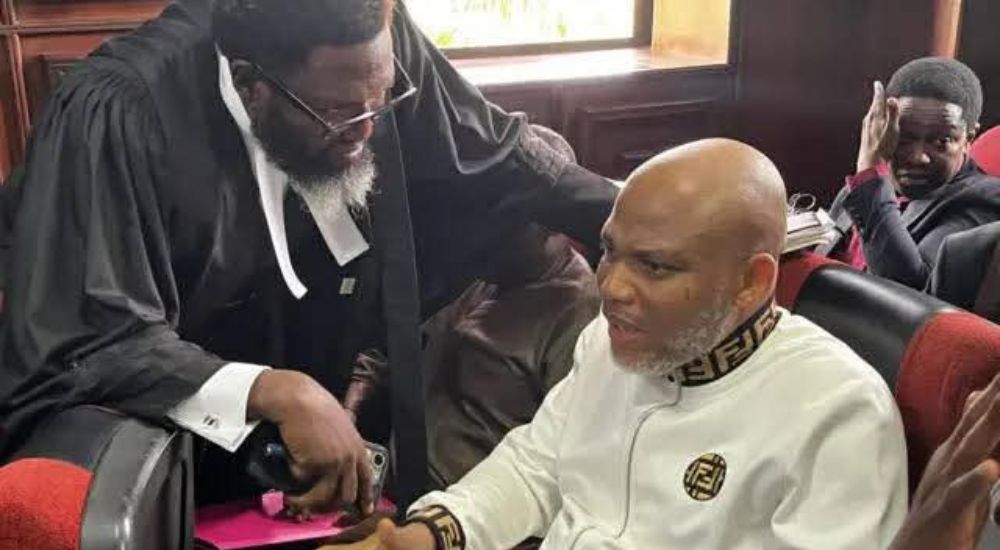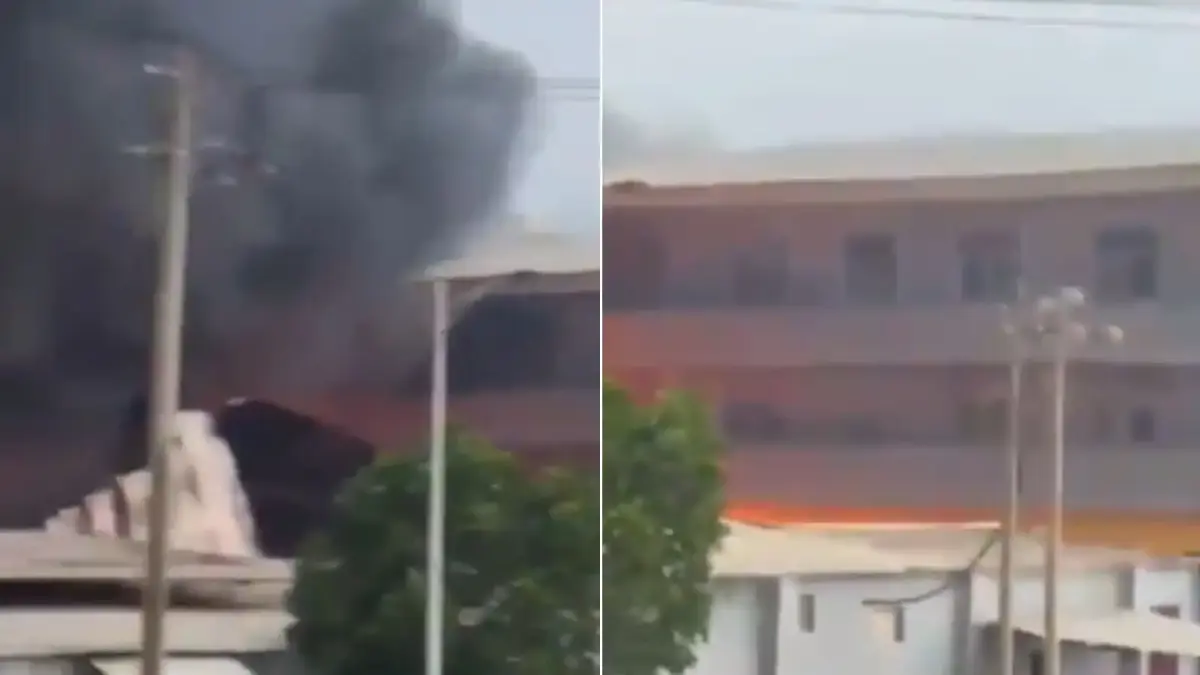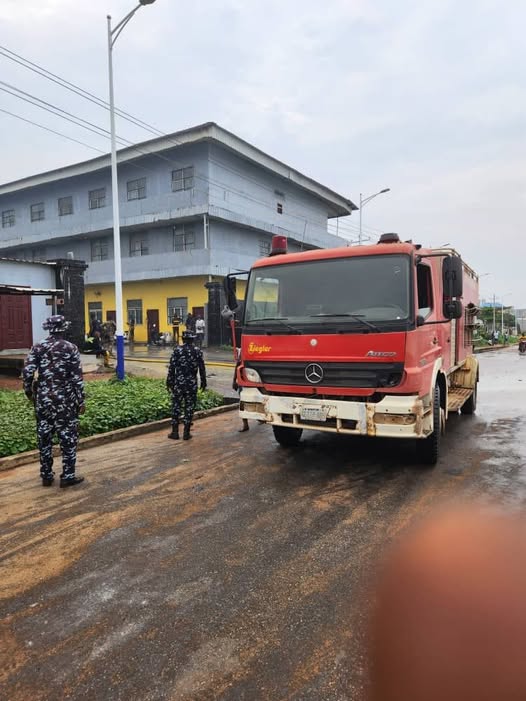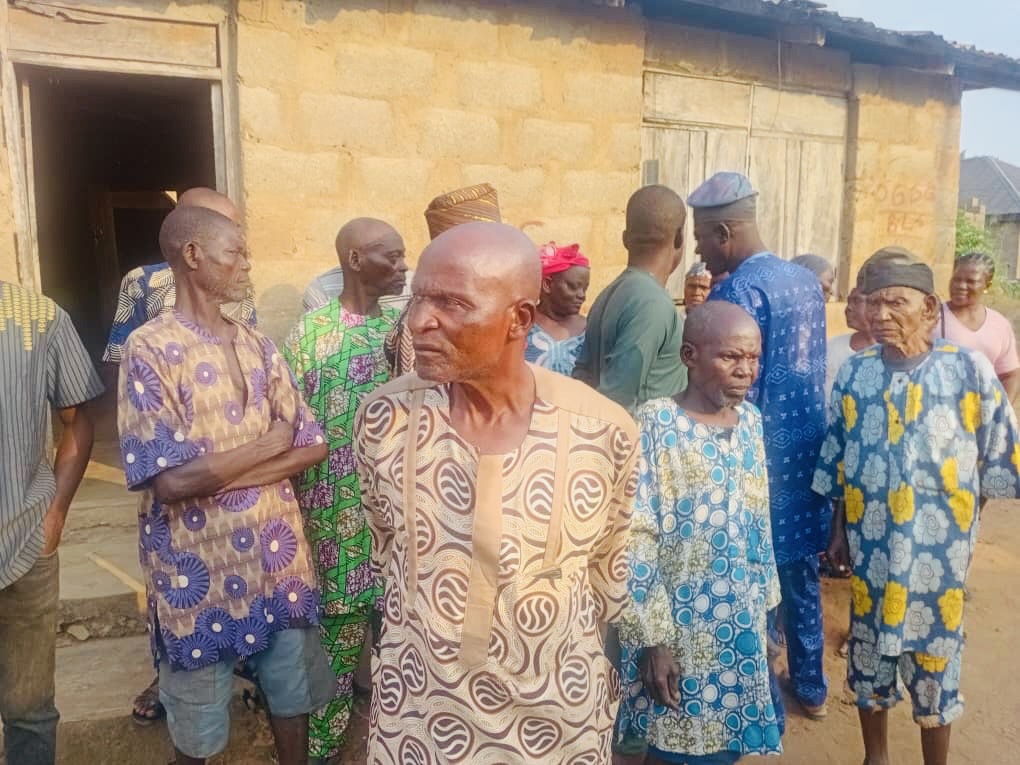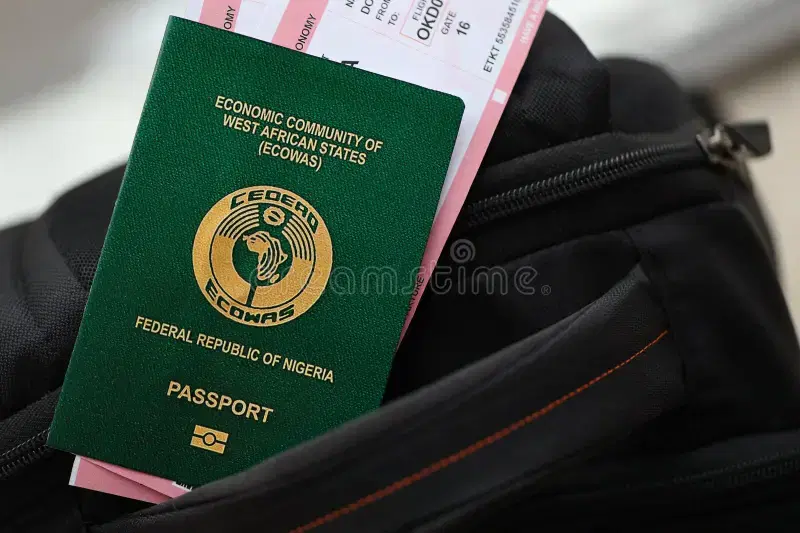Proceedings in the terrorism trial of the leader of the Indigenous People of Biafra, Nnamdi Kanu, took a dramatic turn on Monday, as the trial judge resorted to begging the defendant “in the name of God Almighty to consult properly,” before proceeding to defend himself.
Noting that Kanu had earlier fired his lawyers and opted to defend himself, Justice James Omotosho stressed that he needed to consult legal experts because “this is not economics; this is criminal prosecution.”
“I am begging you in the name of God Almighty to consult properly,” the judge pleaded. “I am inclined to granting you the adjournment you seek.”
“I know you are educated, but you are not a lawyer. You need to consult experts in the field. Please make adequate consultation. This is not economics; this is criminal prosecution. Please, my brother, make adequate consultation. Criminal cases are not like other cases. I took the opportunity to explain to the defendant because he is not a lawyer,” the judge stressed.
Kanu is being prosecuted on seven counts of terrorism before the Federal High Court in Abuja.
The court had on Friday adjourned till Monday for him to open his defence, after Kanu had submitted a list of 23 witnesses he intended to call.
Kanu said he needed an adjournment till Monday because his former legal team, led by a former Attorney-General of the Federation and Minister of Justice, Chief Kanu Agabi (SAN), had yet to release his case file to him.
The IPOB leader expressed readiness to open his defence in a written application to the court, in which he indicated his intention to call witnesses and requested the issuance of witness summons.
Following his request, at the resumed sitting on Monday, the court reserved about five seats in the courtroom, each labelled “Summoned Witness,” in anticipation that Kanu would open his defence.
When the case was called, the Federal Government’s counsel, Adegboyega Awomolo (SAN), announced his appearance, while Kanu identified himself by name and stated that he was representing himself.
Afterwards, Awomolo informed the court that the business of the day was for the defendant to open his defence.
Responding, Kanu, who initially sat in the dock, stood up and stated that he had gone through the case files and discovered that the charges were unlawful.
He argued that since the prosecution had failed to establish any case against him, there was no need to proceed with his defence.
“There is actually no charge against me,” he said.
Kanu further argued that there was no extant law in the country upon which the prosecution could premise its case.
“There is no case against me. If there is no case against me, it will be futile for me to enter any defence,” he added.
At that point, Justice Omotosho intervened and explained to Kanu that in a criminal trial, the defendant has three options after the prosecution closes its case.
He said the first option is for the defendant to make a no-case submission, and if the court overrules it, the defendant is required to enter a defence.
The judge added that where a defendant chooses not to open a defence, he may decide to rest on the prosecution’s case and file a written address, to which the prosecution will reply, after which the court will deliver its judgment.
After listening to the judge’s explanation, Kanu reiterated: “My position is that there is no charge against me. There is no need for me to enter a defence. What I am saying is that there is no case against me.”
Justice Omotosho then reminded him that he had earlier ruled on Kanu’s no-case submission and held that he had a case to answer, noting that the ruling still subsists.
Kanu subsequently applied for a week’s adjournment to enable him to file a written address in support of his argument that no valid charge was pending against him, claiming he was being subjected to an unnecessary trial.
He said: “I need a week to file a written address to the effect that there is no charge against me. If there is no extant law in Nigeria on which the charge could stand, there cannot be a case. You must please release me today or grant bail.”
Responding, Awomolo said that based on the defendant’s statement and the option he had taken, the court should adjourn for judgment.
“I take it that the defendant has said he is not putting in any defence because there is no valid charge against him,” Awomolo submitted.
“I want to submit that this position is conclusive of the defendant’s defence. I know that he took a plea to counts against him and pleaded not guilty. We led evidence, and he cross-examined our witnesses. Now that he says he has no defence, the case has been brought to a close,” the prosecution added.
Awomolo noted that at this stage, there was only one option for the defendant, adding that if Kanu’s objection was to be treated as his defence, the prosecution would respond, and the court would subsequently deliver its judgment.
He explained that Kanu’s current position implied that he had opted to address the court on points of law as his defence.
In his intervention, Justice Omotosho observed that the defendant was not entirely saying he had no defence, but rather that the charge against him could not stand.
He said: “That is also a form of defence. In that case, he will have to put that down in a written submission, which will be served on the prosecution, who will then respond.”
The judge then advised Kanu to consult experts before deciding on how to proceed.
“There is a need for you (Kanu) to consult people who are knowledgeable in criminal prosecution to advise you on how to proceed,” the judge said.
“I am begging you in the name of God Almighty to consult properly. I am inclined to granting you the adjournment you seek.
“I know you are educated, but you are not a lawyer. You need to consult experts in the field. Please make adequate consultation. This is not economics; this is criminal prosecution. Please, my brother, make adequate consultation. Criminal cases are not like other cases. I took the opportunity to explain to the defendant because he is not a lawyer,” Justice Omotosho added.
The trial judge said he has a duty to explain to the defendant the consequences of his decision not to enter a defence.
He added that after Kanu dismissed his legal team, the court had considered referring the case to the Legal Aid Council or any lawyer willing to take it pro bono, but Kanu declined, insisting that he would defend himself.
“Even at that, I still have a duty to explain the consequences of his option to him because he is not a lawyer. Please, make consultation,” the judge said.
The court granted Kanu four days from Monday to file his written address and serve the prosecution to enable it to file its reply.
Justice Omotosho then adjourned the matter till November 4, 5, and 6 for either the adoption of written addresses or for Kanu to open his defence, should he decide to change his mind.
punch.ng
FOLLOW US ON:

